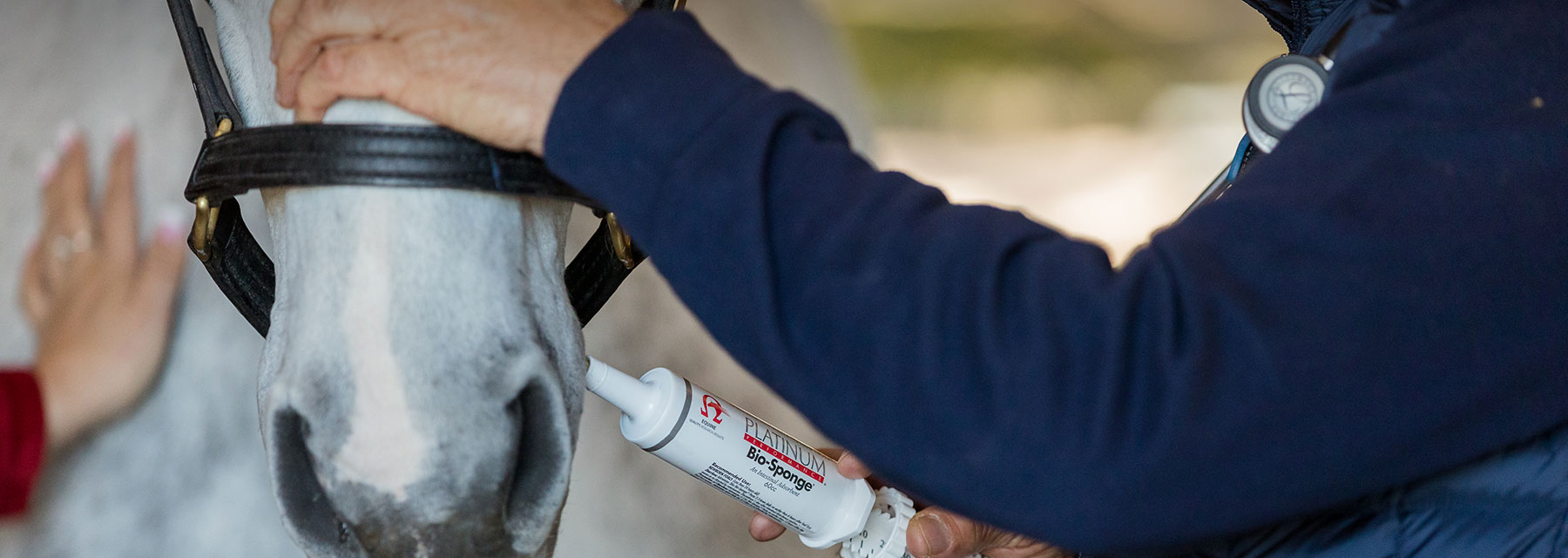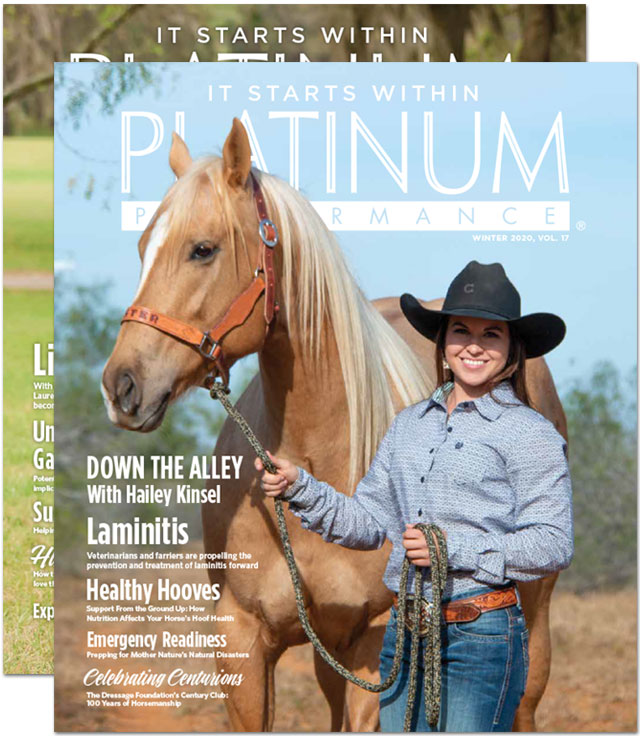Using Bio-Sponge® For The Intestinal Health
and Well-Being of The Horse and Foal
Research performed in adult horses and foals, as well as through in vitro trials, indicates that Bio-Sponge® (Di-Tri Octahedral (DTO) smectite) is an effective tool to support a variety of health concerns that result in occasional diarrhea or gastrointestinal disturbances.
What is Bio-Sponge®?
Bio-Sponge® (DTO smectite) is referred to as an organo mineral with a large surface area that is comprised of organic matter and minerals. When in close proximity to positively charged ions or organic cations, it binds to them and will remove them from the digestive system.
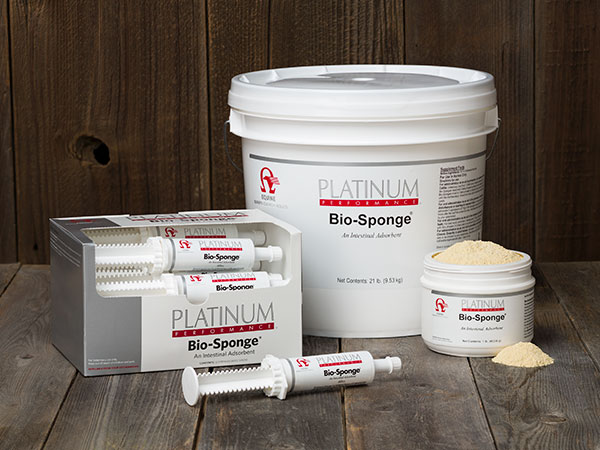
Bio-Sponge® is Recommended to:
- Support horses with occasional watery or loose stool
- Support horses experiencing occasional diarrhea after surgery or treatment with antibiotics
- Support foals experiencing foal heat scours
- Support foals experiencing gastrointestinal issues
Bio-Sponge® is available in powder or paste and is safe to be given daily for horses that need to consume it as part of their diet for occasional intestinal disturbances or loose watery stool.
What is the Difference Between an Endotoxin & Exotoxin?
Endotoxins - a toxin that is present inside a bacterial cell and is released when the cell disintegrates. Endotoxins can be responsible for the characteristic symptoms associated with illness such as botulism (better known as food poisoning).
Exotoxins - a toxin released by a living bacterial cell into its surroundings.
3 Ways to Use Bio-Sponge®?
Prophylactic Use
Can be used prophylactically for foals on endemic farms, as well as for horses being treated with antibiotics to help maintain a healthy digestive tract.
Intestinal Disturbances
Supports horses and foals experiencing occasional intestinal disturbances or diarrhea.
Foal Heat Scours
Bio-Sponge® may be helpful to support foals experiencing foal heal scours.
Bio-Sponge®
May Be Helpful For Foals
Bio-Sponge® is supportive for intermittent cases of diarrhea. It is also widely used with new foals to help maintain a healthy digestive tract. Many veterinarians rely on Bio-Sponge® to help support both foals and adult horses with occasional intestinal disturbances.
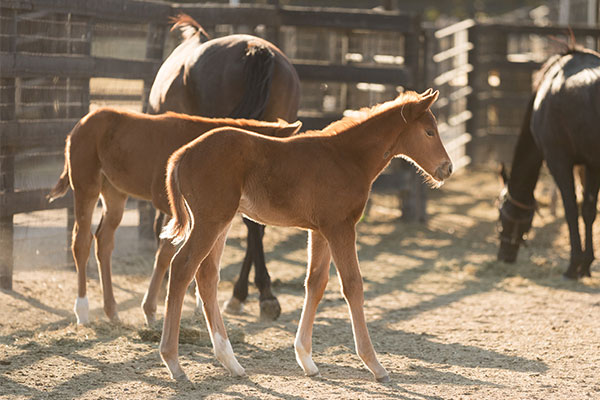

Recommendation For Use
For Adult Horses
Occasional Diarrhea: Administer one 4 oz scoop (97.5 g) of Bio-Sponge® powder or 120 cc Bio-Sponge® paste twice daily or as directed by veterinarian.
Newborn Foal (> 24 hours old)
Occasional Diarrhea: Administer 3 tablespoons (37.6 g) of Bio-Sponge® Powder mixed with 30 cc of water or 30 cc Bio-Sponge® Paste no earlier than 6 hours after foal first nurses. Administer 2-3 times daily or as directed by your veterinarian. *
To Avoid Intestinal Disturbance: Administer 0.5-1.5 tablespoons (4.6-13.8 g) mixed with 10-30 cc of water or 5-15 cc Bio-Sponge® Paste no earlier than 12 hours after the foal first nurses. Administer twice daily for 4-5 days or as directed by veterinarian.
*Discontinue 1 day after intestinal disturbance resolves.
Foals 2-4 Weeks Prior to Weaning through Weaning
As needed for occasional diarrhea or loose stool, administer 3 tablespoons Bio-Sponge® powder or 30 cc Bio-Sponge® paste 2-3 times daily. When fecal matter has solidified, Bio-Sponge® may be discontinued.
Created Out of Clinical Necessity
The Threat of Diarrhea Post Colic Surgery
One of the early threats in horses surviving post colic surgery was diarrhea — caused by the use of both prophylactic and therapeutic antibiotics and the stress of not eating. Progress was seen in practice as reliance on antibiotics eased, leaving healthier gut flora and a decreased occurrence of diarrhea post-operatively. However, for patients that did require antibiotics, veterinarians were asking themselves how to ensure patients didn’t succumb to diarrhea. It was this question that led to one of the better tools to support gastrointestinal health during occasional diarrhea, the advent of Bio-Sponge®.
The theory behind Bio-Sponge® is that the cation-charged surface area in DTO Smectite attracts and binds intestinal compounds associated with loose stool. Bio-Sponge® began inside Alamo Pintado Equine Medical Center and was studied by prominent veterinarians in both clinical and university settings.
“Being a referral hospital, we go through a lot of Bio-Sponge® here. We use it all the time. It’s one of our best therapies.”
— Dr. Chris Boutros, Waller Equine Hospital
Research
Bio-Sponge® has been used in practice for 20 years and has been identified in several universities as a highly effective mineral to provide support during intestinal disturbances.
2000 DTO Smectite and Digestive Health; Kelley Neelley, DVM, and Doug Herthel, DVM, Alamo Pintado Equine Medical Center, 2000.
2003 Evaluation of in vitro Properties of Di-Tri-Octahedral Smectite; JS Weese, DVM, DVSc; NM Cote, DMV, DVSc; and RVG deGannes, DVM, University of Guelph, 2003.
2008 Di-Tri-Octahedral Smectite for use in Post-Operative Diarrhea in Equids: Results of a randomized clinical trial; Diana Hassel, DVM, PhD, Phoebe Smith, DVM, Jorge Nieto, DVM, Pablo Beldomenico, and Sharon J Spier, DVM, PhD, University of California, Davis, 2009.
2008 Adsorptive Effects of Di-Tri-Octahedral Smectite; Jacquelin Lawler, DVM, MS, Diana Hassel, DVM, PhD, Roberta Magnuson, BS, Ashley Hill, DVM, MPVM, PhD, Patrick McCue, DVM, PhD, and Josie Traub-Dargatz, DVM, MS, Colorado State University, 2008.
You May Also Like
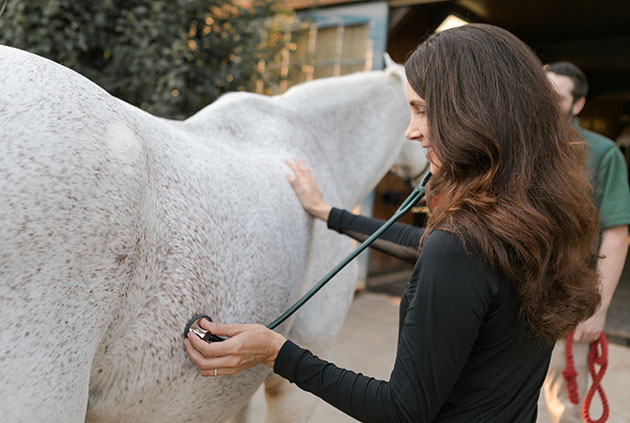
No Guts, No Glory
Probiotics & Functional Nutrition
Read More about Probiotics & Functional Nutrition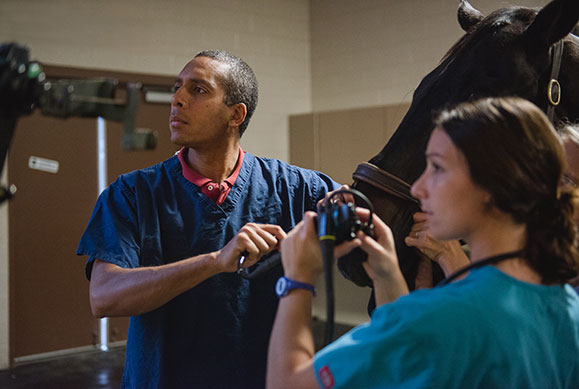
Understanding Ulcers
Potential Causes, Treatments and Preventatives
Read More about Ulcers in Horses
